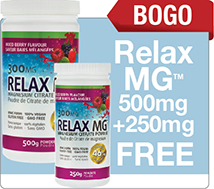- 5000mg
- L-Glutamine
Format
 Powder
Powder
450g
Dosage
Take one teaspoon (approximately 5g) in water per day on an empty stomach, or as directed by a qualified health care practitioner.
Important Information
Contains no wheat, gluten, corn, nuts, peanuts, sesame seeds, sulphites, mustard, soy, dairy, eggs, fish, shellfish or any animal byproduct. Consult a health care practitioner prior to use if you are following a low protein diet or if you are pregnant or breastfeeding.
- Leaky gut.
- Immune function.
- Anabolic activity.
- Muscular recovery.
- Alcohol craving.
- 100% Vegetarian
Related Videos
No Related VideosArticles by a naturopathic doctor.
AOR Canada is the innovative formulators of Canada’s best-selling antioxidant support, AOR Advanced B Complex and AOR Tri-B12. They are also known for their top bone health supplements, Ortho Adapt and Bone Basics. You can also SHOP AOR's Nattokinase, and trusted Curcumin Ultra, Curcumin Active and Curcumin95 inflammation support at National Nutrition.ca. AOR are leaders in natural health with innovative product development.
Glutamine is one of the 20 fundamental amino acids involved in protein synthesis, and it is also the most abundant, forming approximately one-fifth of the amino acid pool circulating in the human bloodstream. It is classified as "non-essential" because it can be synthesized from another amino acid, namely glutamic acid. The significance of glutamine, however, cannot be overstated, as it isitical for a wide variety of essential functions, including: optimal operation of the kidneys, pancreas, gall bladder, liver, the small and large intestines, and the brain. Glutamine is also the most important of all amino acids in maintaining nitrogen balance within the body, accounting for a full one-third of all amino acid nitrogen transported in the human bloodstream.
Although all amino acids release an atom of nitrogen into the bloodstream after they are broken down in the liver, glutamine's higher concentration in the bloodsteam combined with the fact that it has two nitrogen side-chains is the reason for this. Furthermore, it is a precursor for what is arguably the body's most powerful endogenous anti-oxidant, glutathione; it also plays a role in growth hormone production and seems to be important for proper glycogen deposition as well.
A central characteristic of glutamine is that it becomes seriously depleted during the course of catabolic stress such as injury, infection, or even strenuous exercise. While the average person is likely to consume approximately 10 grams of glutamine daily, a conservative estimate for the needs of someone in such a stressful state is 20-40 grams of glutamine daily. This ubiquitous supplement is used by health professionals to treat a multitude of conditions. Rather than asking what glutamine does, it seems more appropriate to ask what it doesn't do. For practical purposes, however, let us focus on glutamine's more fundamental usages.
Supporting the Digestive System
Studies among laboratory rats have revealed that the intestinal tract and other portal-drained viscera account for approximately 40% of all the glutamine utilized by the whole body. The vast majority of this glutamine is consumed by the epithelial cells which convert it into energy for use by the mucosa, the lining of the small intestine. This importance of glutamine to the intestinal tract (and by extension to glucose metabolism) was only discovered in the last twenty years. This holds important implications for hospital patients placed on enteral nutritional support. For patients with intestinal tract difficulties, this is when a percutaneous endoscopic jejunostomy (PEJ) tube is inserted into the small intestine to provide nutritional support. Recent clinical trials have attempted to assess the significance of adding glutamine to enteral amino acid formulations in hospitals, and the results have been impressively widespread. Enteral diets enriched with glutamine were well-tolerated and alleviated many of the immunological aspects of multiple trauma patients as well as mitigating the extent of mucositis in post-chemotherapy patients.
Anti-Carcinogenic
The potency of glutamine has been examined for its possible applications against various types of unhealthy cells, and this is somewhat paradoxical since unhealthy cells have been described as a nitrogen trap. Considering the essential role of glutamine in nitrogen transport, this forms a scientific dilemma. Tumor cells need to acquire glutamine in order to grow, so while glutamine deprivation seems like the first course of action, it is not practical due to the adverse effects it would cause the host. Furthermore, tumor growth is synonymous with a fervent consumption of glutamine which results in a decrease in the amount of glutamine available for glutathione production, which in turn results in the decreased numbers and activity of glutathione-dependent natural killer cells. In this situation, supplemental glutamine has been shown to revitalize natural killer cells via the restoration of glutathione.
Anti-Virus
Infections cause significant changes in the distribution of glutamine among the organs of the body. Severe inflammatory infections are often referred to as sepsis, and during these periods, circulating insulin-like growth factor (IGF-1) levels are known to drop significantly, which is concurrent with decreased levels of glutamine absorption by the bowel. The intracellular glutamine pool becomes rapidly depleted, especially from the skeletal muscle and the lungs, and the major repository for the glutamine during these times of infection is the liver. The immune system is also a major consumer of glutamine during states of sepsis, and the accumulative effect of all of this glutamine redistribution is the reduced amount of glutamine available for other key cellular functions, including the production of antibodies and glutathione. Supplemental glutamine during these states of sepsis may alleviate this problem, and recent studies have confirmed this.
Growth Hormone and Athletic Health
The importance of growth hormone in overall health and vitality has been well-established for decades. However, obtaining and administering growth hormone from either human or bovine sources (the two most common forms) comes with high costs and inherent risks. This has led to a search for natural growth hormone enhancers, many of whom are amino acids, and one of the most effective and efficient of these is glutamine. In fact, a recent study demonstrated that even a relatively modest two gram dose of glutamine (orally administered) can illicit a growth hormone level increase of 19% after 30 minutes of ingestion, a rate sustained at 12% after 60 minutes of ingestion. Elevated levels of growth hormone have also been linked to physical activity and exercise, and supplemental glutamine has gained a very firm foothold in the discipline of the latter.
The fact of the matter is that according to the latest studies in exercise physiology, resistance training (which coincidentally is the only type of exercise known to markedly raise growth hormone levels) has a similar effect on endogenous glutamine reserves as sepsis. The skeletal muscle amino acid pool, 60% of which is normally comprised of glutamine, begins to jettison its all-important glutamine reserve to feed the gluttonous liver. The homeostasis between the tissues that produce and release glutamine and those that depend on it has once again been disturbed. Some studies have indicated as much as a 50% drop in plasma glutamine levels after a single bout of resistance training exercise, requiring more than 24 hours to recover to pre-exercise levels. In 1996, biochemists at both the departments of Microbiology and Human Movement at the University of Western Australia suggested that glutamine is a 'conditionally essential' amino acid and may need to be supplemented in the diet in certain stress situations.
- Reviews
- POST A NEW REVIEW





















